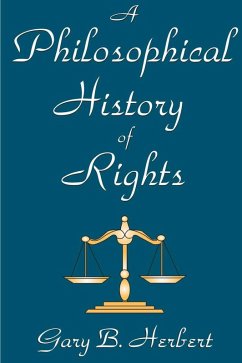The volume examines the early history of rights as they existed in ancient Greece, and locates the first philosophical inquiry into the nature of rights in Platonic and Aristotelian accounts. He traces Roman jurisprudence to the advent of Christianity, to the divine right of kings. Herbert follows the historical evolution of modern subjective rights, the attempts by Locke, Rousseau, Kant, Fichte, and Hegel to mediate rights, to make them sociable. He then turns to nineteenth-century condemnation of rights in the theories of the historical school of law, Benthamite utilitarianism, and Marxist socialism. Following World War II, a newly revived language of rights had to be constructed, to express universal moral outrage over what came to be called crimes against humanity. The contemporary Western concern for rights is today a concern for the individual and a recognition of the limits beyond which a society must not go in sacrificing the individual's welfare for its own conception of the common good. In his conclusion, Herbert addresses the postmodern critique of rights as a form of moral imperialism legitimizing relations of dominance and subjection.
In addition to his historical analysis of the evolution of theories of rights, Herbert exposes the philosophical confusions that arise when we exchange one concept of rights for another and continue to cite historica
Dieser Download kann aus rechtlichen Gründen nur mit Rechnungsadresse in A, B, BG, CY, CZ, D, DK, EW, E, FIN, F, GR, HR, H, IRL, I, LT, L, LR, M, NL, PL, P, R, S, SLO, SK ausgeliefert werden.









